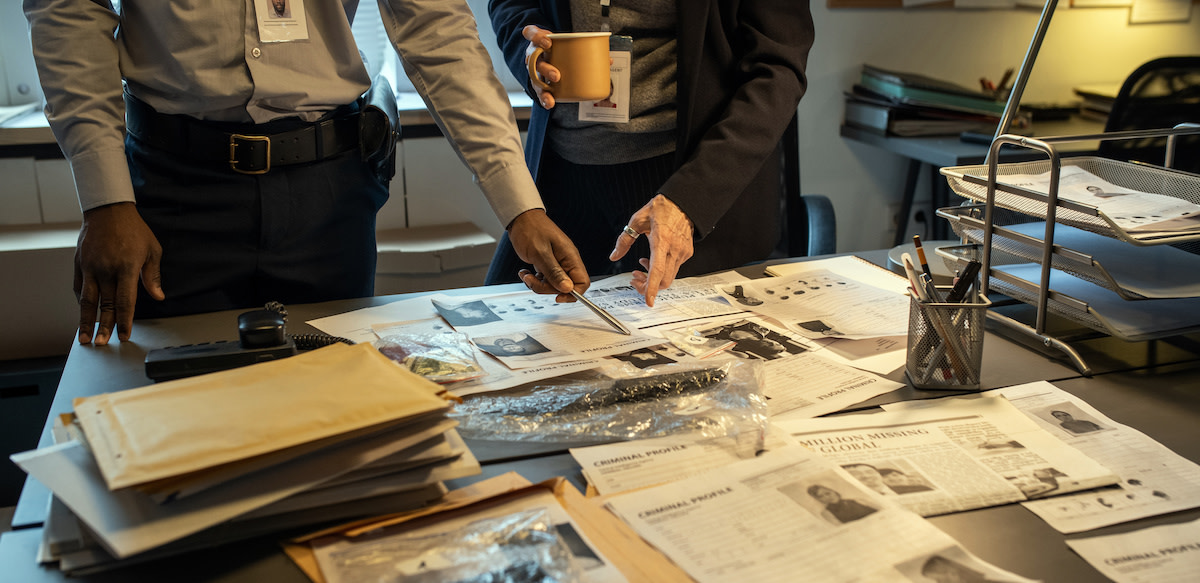Criminal Profiler Job Duties: Careers in Criminal Profiling
Written by MasterClass
Last updated: Nov 7, 2022 • 4 min read
Criminology is the study of crime, so it’s unsurprising at least some criminologists dedicate their lives to studying what causes a criminal mind to develop in the first place. These criminal profilers help build general guidelines about the type of people likely to commit specific crimes in the interest of helping investigators. Learn more about how you can become a criminal profiler.
Learn From the Best
What Is a Criminal Profiler?
Criminal profilers are investigators dedicated to the study of what shapes criminal behavior. They comb through data about past crimes, current cold cases, and convicted criminals to better understand what causes people to commit acts of violence, cybercrime, terrorism, and more. Some might even interview criminals face-to-face.
By studying past criminal behavior, criminologists then help bring at-large criminals to justice. They often work for countrywide law enforcement agencies like the Bureau of Alcohol, Tobacco, Firearms and Explosives (ATF) or the Federal Bureau of Investigation (FBI).
Criminal profiling is also different from forensic psychology. While forensic psychologists work with actual victims, criminal offenders, and court officials, criminal profilers devote their time to building up hypothetical profiles of potential criminals.
History of Criminal Profiling
Criminal profiling stretches back to at least the days of Jack the Ripper’s killing spree throughout Victorian London. Detectives of the time worked day and night to try to build a profile of who the stil unknown serial killer could be in an attempt to bring him to justice.
Since then, the field has become both more effective and sophisticated. In the 1970s, the FBI started its Behavioral Science Unit. Agents like John Douglas interviewed serial killers to better understand what would drive a person to such pathological and extreme acts of routine violence. Their analysis helped bring numerous criminals to justice and provide the basis for contemporary criminal profiling.
Criminal Profiler Job Description
Criminal profilers wear a lot of hats. Here are just a few key duties and responsibilities to expect in the average job description:
- Analyzing crime scenes: While most criminal profiler jobs will have you spending more time in solitude than in action, you’ll still need to be able to perform crime scene analysis. The more you understand the scene of a crime, the better you can determine the type of person who could do such a thing.
- Building psychological profiles: As you study the behavior patterns of criminals, you’ll need to start crafting unique profiles for certain types of cases. This will help investigators narrow down their suspect pools. You’ll offer your colleagues a specific profile, depending on what state you believe the perpetrator was in.
- Conducting extensive research: You’ll need to conduct research on a routine basis in both an abstract and hands-on way. This means combing through old cases as much as it does talking to recent victims and offenders. The extensive amount of research criminal profilers perform is just one reason these professionals often double as expert witnesses for trial courts.
- Interviewing criminals: When you speak to criminals, you gain insight into the workings of their minds. This helps you better identify at-large suspects who fit a similar profile. In other words, you’ll need both analytical and communication skills to do this job well.
The Importance of Criminal Profiling
Criminal investigative analysts and profilers lay the groundwork for law enforcement officials to arrest dangerous people. Their assessments help detectives and police officers on the ground better tailor their investigations to target people likely to commit crimes. While the criminal profiling process might not be perfect, it’s helped bring justice to victims and their loved ones.
How to Become a Criminal Profiler
To become a criminal profiler, you need to dedicate yourself to gaining years of experience and education. These are just a few tips to keep in mind as you pursue this career path:
- Attend a law enforcement academy. Enroll in a criminal justice program to supplement any traditional schooling. Start by looking into your local police department’s training program. Many criminal profilers attended the FBI Academy in Quantico, Virginia, and served as special agents in the bureau before assuming their current roles as profilers. While this is an invitation-only and competitive program, it’ll set you up for success if you can get a spot.
- Develop your skill set. Criminal investigative analysis requires a skill set as deep as it is wide. Alongside perfecting investigative techniques, you’ll also need to hone your analytical skills. Criminal investigations are often grisly affairs, so you’ll also need to practice emotional detachment to be able to do your job.
- Gain experience. This specialized position is not an entry-level one. To become a criminal profiler, you must demonstrate years of investigative experience in a related field. Think about starting a career as a local law enforcement officer, federal agent, or detective before applying to become a criminal profiler. It’ll make you a far more competitive candidate.
- Obtain an advanced degree. You’ll need a bachelor’s degree, if not also a master’s degree, in a discipline like forensic science or psychology to become a criminal profiler. Your educational background should demonstrate a deep understanding of human behavior and criminology. This will help you qualify for positions in elite criminal profiling institutions like the FBI’s Behavioral Analysis Unit (BAU) or the National Center for the Analysis of Violent Crime.
Discover What Makes People Tick
Getting to the core of human behavior takes knowledge and skills—just ask former FBI criminal profiler John Douglas. Learn how to spot a liar and uncover John’s tips for identifying other deceptive behaviors when you sign up for the MasterClass Annual Membership.
